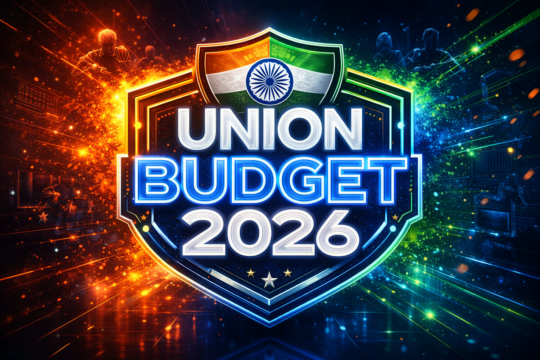The Union Government has introduced the ‘Promotion and Regulation of Online Gaming Bill, 2025‘ in Lok Sabha. The Bill seeks to promote and regulate esports, educational and social games while completely prohibiting the offering, operation, facilitation, advertisement, promotion and participation in online money games.
The Bill defines “E-sport” as an online game played as part of multi-sport events and involves organized competitive events between individuals or teams, conducted in multiplayer formats governed by pre-defined rules and recognized under the National Sports Governance Act, 2025. It points out that outcomes of e-sports are determined solely by players’ skills such as physical dexterity, mental agility, or strategic thinking. Participation may involve entry fees and performance-based prizes, but no bets, wagers, or gambling are allowed.
Akshat Rathee, Co-founder and Managing Director of NODWIN Gaming called the government’s intent to recognize and promote esports, as highlighted in the recent bill, an encouraging step towards building a structured and globally competitive ecosystem. However, he adds that for this vision to truly materialize, it is critical that the terminology used in the bill, particularly the distinctions between esports, online gaming, online social gaming, and online money gaming be clearly defined and uniformly understood.
“This alignment between government intent and regulatory clarity will ensure that India doesn’t just participate in the global esports movement, but establishes itself as one of its leading powerhouses.” — Akshat Rathee, Co-founder and Managing Director of NODWIN Gaming
“The absence of precise definitions has often led to ambiguity and conflation around the term “esports”. Such overlaps can create confusion not just for regulators, but also for players, teams, investors, and organizers who are working hard to build this industry.
“Clear and consistent definitions will create a strong regulatory foundation that ensures investor confidence, long-term stability, and sustainable growth. It will allow every stakeholder from athletes and teams to platforms and video game publishers to operate with clarity and confidence, knowing the industry’s guardrails are well established. This alignment between government intent and regulatory clarity will ensure that India doesn’t just participate in the global esports movement, but establishes itself as one of its leading powerhouses.”
The Central Government will take necessary steps to recognize and register e-sports as a legitimate competitive sport in India and to promote its growth. These steps may include setting guidelines for events, establishing training and research institutions, introducing incentives and awareness programs, coordinating with State Governments and sports federations, and implementing other measures to support the development of the sector.
The Bill defines “Online money game” as any online game, based on skill, chance, or both, where a user pays fees, deposits money, or stakes something with the expectation of winning monetary or other rewards. This definition does not include e-sports.
Animesh “Thug” Agarwal, Co-founder and CEO, S8UL, says this bill marks a historic turning point for Indian esports.
“By drawing a clear line between skill-based competitive gaming and betting, it safeguards the integrity of our ecosystem while opening doors for structured growth.” — Animesh “Thug” Agarwal, Co-founder and CEO, S8UL
“By drawing a clear line between skill-based competitive gaming and betting, it safeguards the integrity of our ecosystem while opening doors for structured growth. Esports is a sport built on skill, discipline and years of grind. With government recognition and the right infrastructure, India is now poised to become a global powerhouse in esports and gaming culture.
“The focus must now be on developing infrastructure such as arenas, bootcamps, education programs, and scholarships to nurture the next generation of talent, whether competing on the world stage or shaping culture as gaming creators,” he says.
No person shall offer, promote, or engage in online money games or online money gaming services. Similarly, no person shall create, cause, or be involved in any advertisement in any media, including electronic communication, that directly or indirectly encourages participation in online money games or promotes online money gaming.
The Online Gaming Bill 2025 has been making waves across the gaming industry, especially with its proposal to ban real-money online games while at the same time recognizing and promoting esports and skill-based social gaming.
Rohit N Jagasia, Cofounder & CEO, Revenant Esports, says the bill is a welcome step toward resolving years of uncertainty in the sector.
“At present, a mix of state-level restrictions creates inconsistency. This bill helps bring a balance to that. With a central framework in place, we can unlock investment, foster innovation, and drive global competitiveness.” — Rohit N Jagasia, Cofounder & CEO, Revenant Esports
“At present, a mix of state-level restrictions creates inconsistency. This bill helps bring a balance to that. With a central framework in place, we can unlock investment, foster innovation, and drive global competitiveness,” he says.
He also points out that the bill also recognizes the crucial difference between esports, social gaming, and chance-driven money games.
“For esports in particular, that clarity is essential for growth and credibility. Once the detailed provisions are made public, we’ll have a clearer sense of its implications for esports. But it could well mark the start of India’s rise as an international esports leader.”
Vikram Jeet Singh, Partner at BTG Advaya, a law firm, points out that the Bill’s clause that seeks to ban “online money gaming”, which is the “depositing of money” for “winning money or other stakes”, impacts games such as rummy, poker, etc., where winning money is possible.
“India’s online gaming market is valued at almost USD 4 billion, which will take a hit following from this – banning RMG may also have an impact on people employed in the gaming sector. Gaming companies have been subject to a 28% GST levy, in the past. But the bill indicates a move from regulating to banning, when it comes to RMG.” — Vikram Jeet Singh, Partner at BTG Advaya
“Under Indian law games of skill are legal, and games of chance are considered gambling and prohibited. Wagering money on games of skill was legal until now. The bill in Parliament follows a regulatory trend against RMG even in games of skill – the Madras High Court in June 2025 had upheld restrictions on Real Money Games (RMG) in Tamil Nadu. Now, pursuant to these new regulations, even games of skill that involve real money can be banned. Advertising RMG will be prohibited and promoting this may lead to sanction for advertisers as well.
“One reason that has been suggested for this ban is the alleged use of RMG for money laundering activities. India’s online gaming market is valued at almost USD 4 billion, which will take a hit following from this – banning RMG may also have an impact on people employed in the gaming sector. Gaming companies have been subject to a 28% GST levy, in the past. But the bill indicates a move from regulating to banning, when it comes to RMG.”












